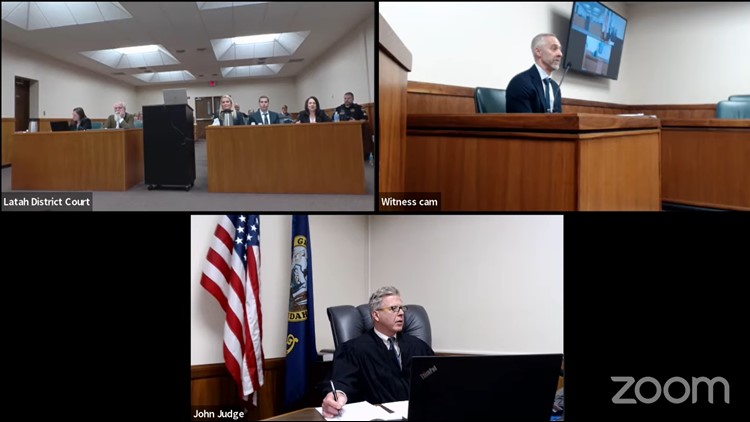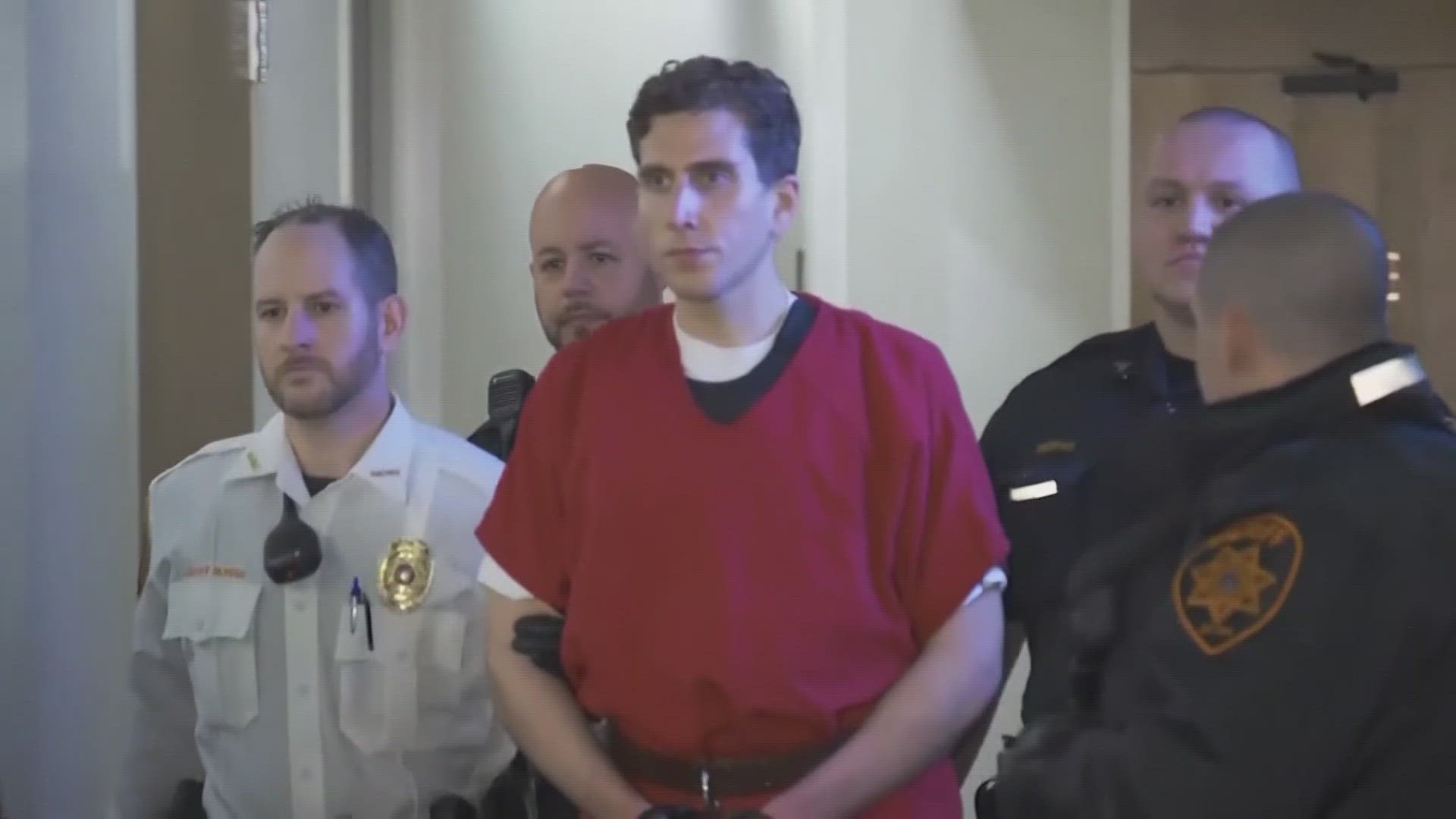LATAH COUNTY, Idaho — The creator of a survey asking hundreds of Latah County residents what they knew about the case of four college students killed in 2022 argued that it was not his questions that may have “poisoned” the jury pool, but instead, media coverage was to blame.
Latah County Judge John Judge was expected to decide whether Bryan Kohberger’s defense team compromised potential jurors in the Idaho county with the phone survey and if the contractor should stop surveying people. However, Judge did not make a ruling on Wednesday.
Kohberger is charged with the murders of four University of Idaho students in November 2022. Prosecutors previously raised concerns about the questions in the survey, which contacted 400 people in the area. The defense said it hired an outside company to conduct the survey but did not know what questions were being asked.
“There’s nothing I did to contaminate the jury pool,” said Dr. Bryan Edelman, the creator of the survey. Edelman, who testified in court on Wednesday, is a trial consultant and expert on pre-trial publicity.
When hired for a case, Edelman said he reviews the nature of the publicity surrounding the case. If it is high interest with copious media coverage, he then conducts a community attitude survey to find what impact prejudicial media coverage may have had on a potential jury pool.
“I don’t really care if it’s correct information, [if] it came from social media, [if] it came from the news. It had an impact on the jury pool, that’s what matters because they develop opinions and attitudes,” Edelman said in court on Wednesday. “It doesn’t make a difference if that fact’s true or false, they still develop an opinion and an attitude about the defendant, about the evidence and perceptions of guilt. … All that is what I’m looking at."
Edelman created the survey by examining coverage by local newspapers and TV stations to see what the community is exposed to. He reviewed over 200 newspaper articles and TV news stories for the survey on Kohberger.
Edelman said he was aware of the non-dissemination order but that it did not change his work and that the defense team did not write any of the questions.
“The idea that we should only test things that are factually accurate and assume that the other stuff isn’t prejudicial is just ridiculous,” he said.
Edelman said everything he used in the survey was “widely disseminated in the media.” During his testimony, he referenced a news conference at which Latah County Prosecutor Bill Thompson urged media outlets to share probable cause documents “far and wide.”
Information in the affidavit was shared by media, and on social media, which led to the spread of rumors and misinformation, Edelman added.
Thompson refuted this on Wednesday, saying the probable cause affidavit only included information that would be included in the court record. He said the phone survey “force-fed” information to potential jurors that they may not have known previously and that some of the questions were factually incorrect.
The nine questions of issue included inquiries about if they had seen, read, or heard if Kohberger's DNA was found on a weapon at the scene, if a car similar to the one he drove was found at the scene, and if he had stalked one of the victims, among other points.
However, Edelman said if someone doesn’t initially recognize the case when called, the surveyor moves on to questions about the person’s media consumption and demographic questions and does not ask questions on specific details about the killings or case events.
“In a community like this, that has been saturated with media coverage that has been prejudicial, we want to know what case-specific details they know,” he said.
Thompson argued that people may have been aware of the case, but did not know specifics – even if the specifics were rumor-based or entirely false – until asked the question by the surveyors. Edelman agreed.
Judge said some of the survey questions included information that was false and information not found in the affidavit, pointing out that the non-dissemination order was put in place to prevent certain information from getting out into the media.
The judge said some of the survey questions were from the affidavit, but some of the claims were not and that both sides seem to be operating on a different definition of public record.
Judge declined to rule on the survey motion, saying he needed to think it over. The change of venue hearing is rescheduled to Thursday, June 27.



